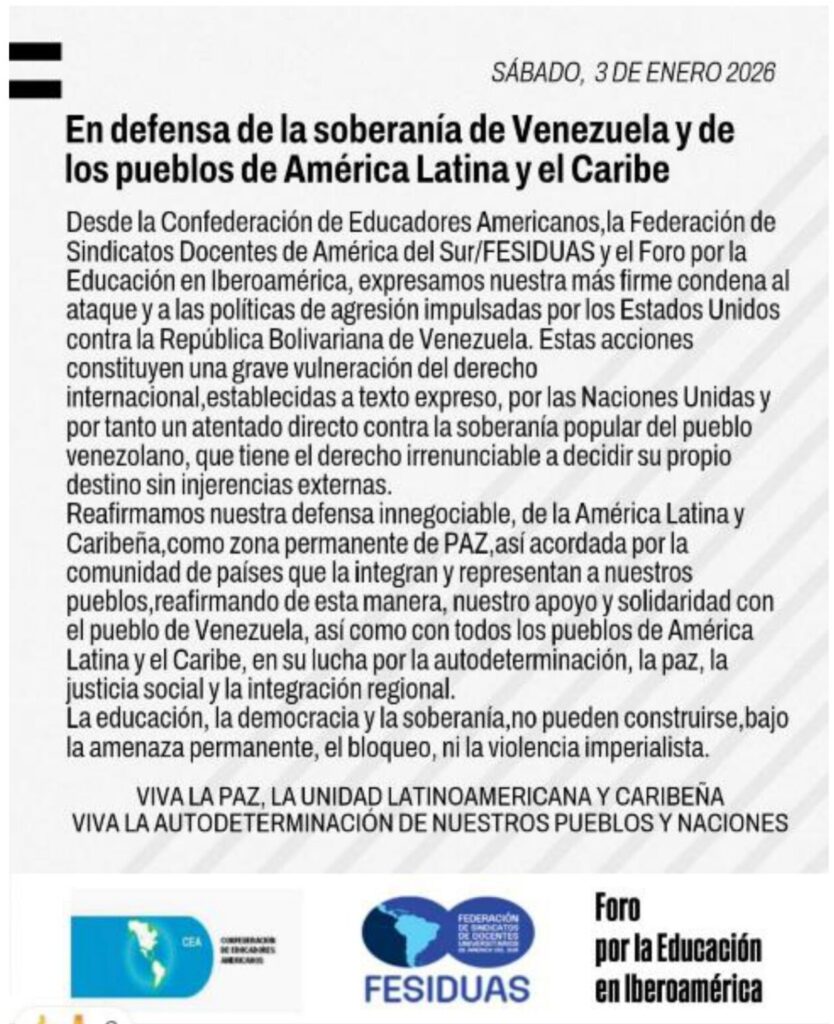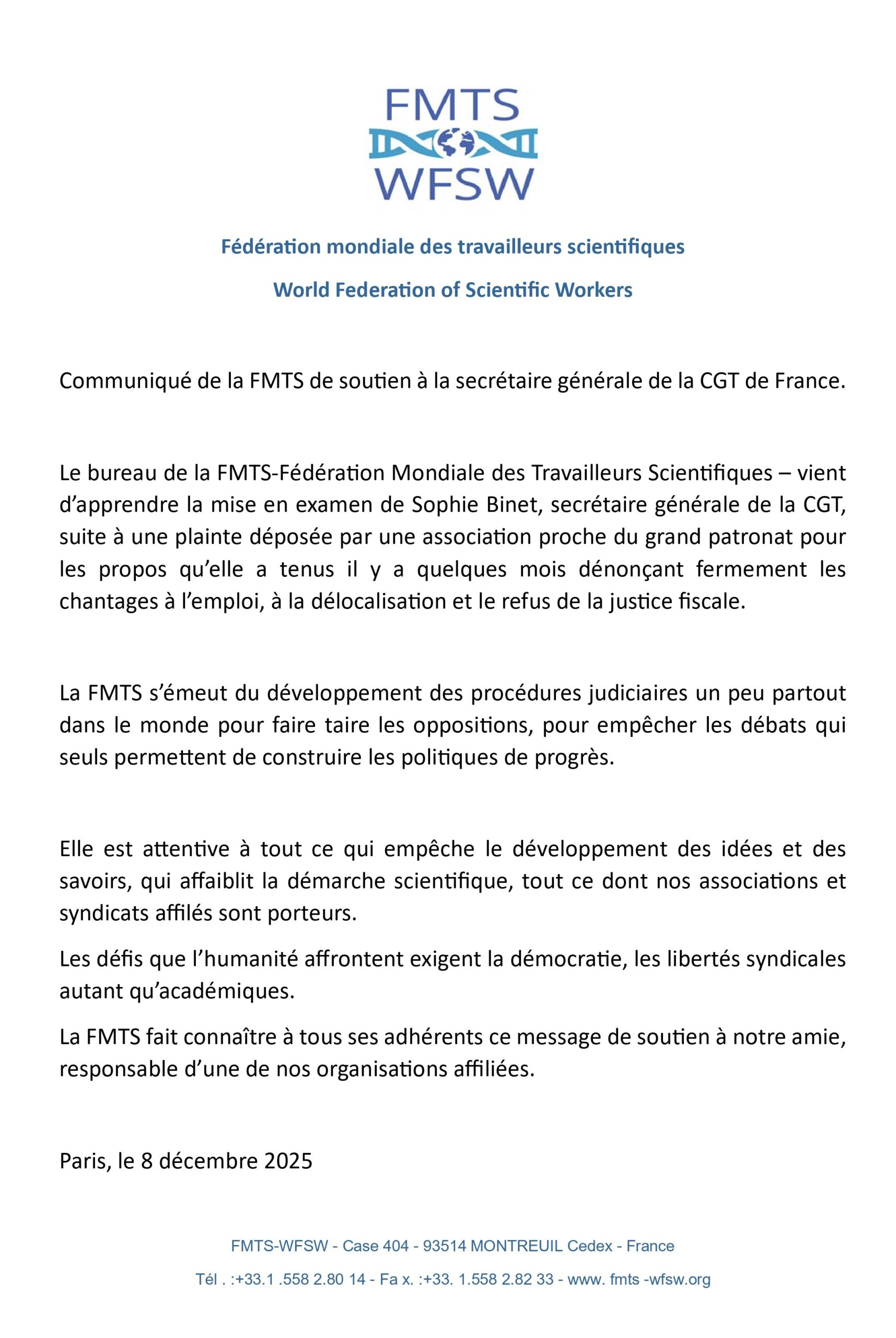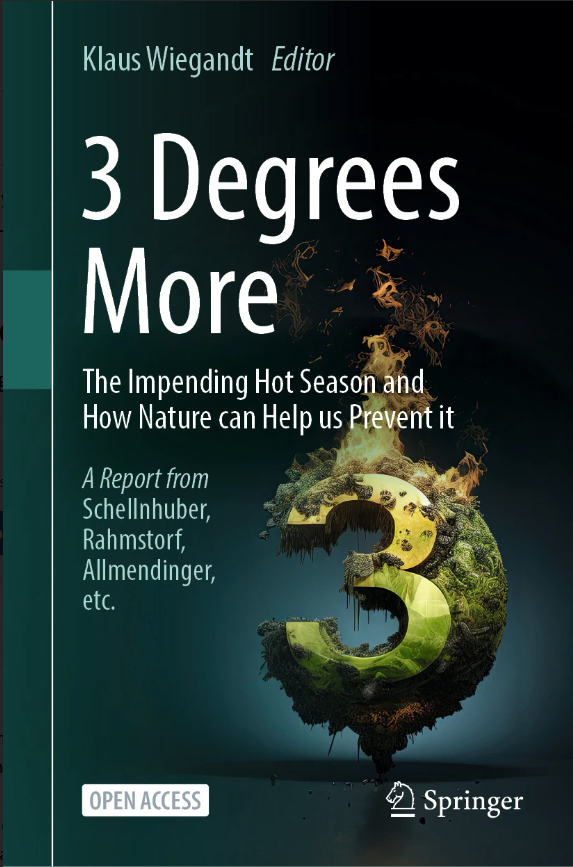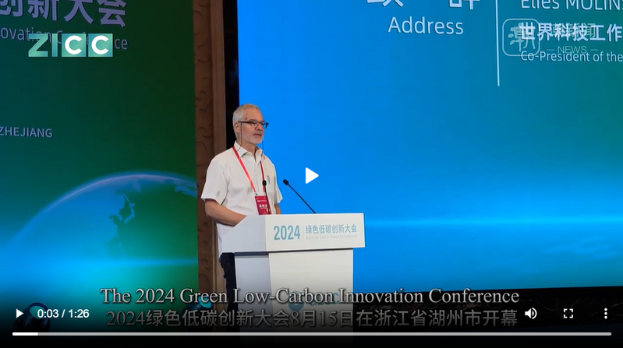Let’s go to Open science
Address by Josette Rome Chastanet, member of the WFSW Executive council, to the UNESCO General Conference
The World Federation of Scientific Workers was created in 1946 by high-level scientists and the British Association of Scientific Workers. Frédéric Joliot-Curie and Cecil F. Powell, both Nobel Prize winners, were his first two presidents.
Reasons for this creation:
1: Mobilize science on food problems in the aftermath of the destruction of the war.
2: Say NO to new Hiroshima, science must be in the service of Peace.
3: Science is not an abstraction: the working conditions of researchers, academics, engineers and technicians must be guaranteed. Academic freedom respected.
The Director-General’s call to engage States and NGOs in the new path of open science is of great importance.
Open science is a global movement initiating a change of civilization. Its goal is to make the principle of the common good a reality by allowing everyone free and open access to scientific publications and data. This presupposes quality education from an early age, based on the production and dissemination of sound and verified scientific knowledge.
This access requires platforms for depositing publications and data under the control of public institutions such as universities and research institutes in order to guarantee their technical and financial sustainability.
Open science is a way of stating equality for all countries. Did you know that access to paid scientific publications in Africa was only 2.6%? The integration of traditional knowledge will be promoted.
Open science is a powerful tool to make the world’s citizens critical, informed actors, who will be able to take part in informed political and economic decisions and participate in some scientific work.
For young people and women, it opens the door to the deconstruction of preconceived ideas so old that they have formatted our neurons to an acceptance that allows the reproduction of inequalities.
When we talk about young scientists and researchers, both women and men, there is a fundamental issue that must be addressed. Today, all over the world, despite different levels, and even if scientific results are tangible, they are more and more often produced in appalling working conditions characterized by precariousness, anxiety and professional exhaustion.
Open science is the sister of scientific diplomacy. The participation of diplomats in the creation of major scientific infrastructures such as CERN, the cooperation of scientists from countries at war for the successful SESAME project in the Middle East, both led by UNESCO; the fact that scientific expertise is essential for decision-makers to address issues such as global warming, or food security.
I am powerless to say in 3 minutes all that open science and scientific diplomacy are and how they can be useful for a new civilization, so please be interested in the documents already produced such as 206 EX9!
The 40th General Conference is to decide on the advisability of a recommendation on open science, which would then be voted on in 2021 at the 41st General Conference. I have no doubt that UNESCO’s Member States want this to be the case.





